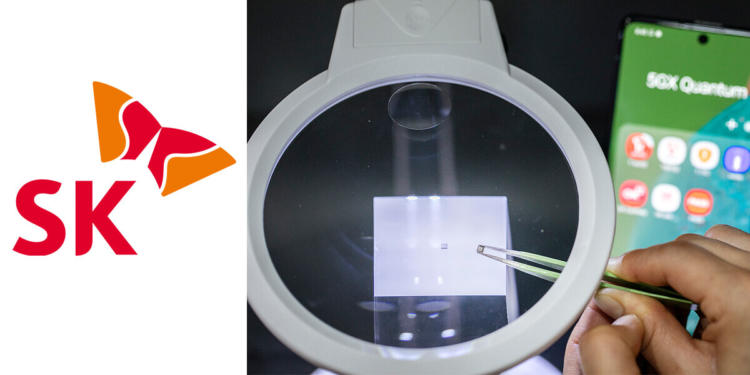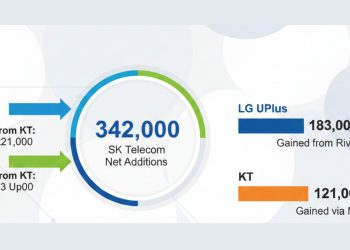SK Telecom announced on Thursday that its signed deals with major tech companies to use the industry’s first miniaturized quantum random number generator (QRNG) chipset in developing security products for mobile phones, autonomous vehicles, artificial intelligence, and other various industries.
However, SK Telecom did not disclose details of its partners.
The South Korean telecom company with its partners, Switzerland-based ID Quantique (IDQ), and fabless Korean company BTREE began developing QRNG chipsets for smartphones since 2016.
ID Quantique provided the quantum random number sequence technology while BTREE supplied the semiconductor chipsets.
Founded in 2014, BTREE specializes in semiconductor chipsets and image sensors. The company supplies its products to leading international semiconductor producers.
In 2018, SK Telecom acquired IDQ with the aim of becoming the first producer of the state-of-the-art quantum-powered security chipset.
Last May, SKT, along with its partners, Switzerland-based ID Quantique and fabless Korean company Btree, developed the QRNG chipset for Samsung Electronics’ Galaxy A Quantum.
The Galaxy Quantum A is Samsung’s latest mid-tier smartphone and is the first to feature SKT’s quantum cryptography solution.
Industry’s First Miniaturized Quantum-Powered Chipset
SKT’s chipset is the industry’s smallest QRNG chipset to measure only at 2.5 mm by 2.5 mm. The technology could be applied to certification and identification procedures. It generates unbiased and unpredictable true random numbers that help strengthen privacy while accelerating data transmission.
The technology makes it impossible for outside parties to infiltrate the system. It uses an LED that produces photons in which a CMOS image sensor captures and transforms them into random numbers.
IDQ’s South Korean branch manager, Uhn Sang-yun, said that the QRNG chipset could become an alternative encryption system in the dawn of quantum computers.
Currently, SK Telecom said that it is looking for ways to slim down the mobile QRNG chipset further to meet global smartphone manufacturer’s criteria. The company also announced that it would launch a new public programming interface to offer developers access to the system.







